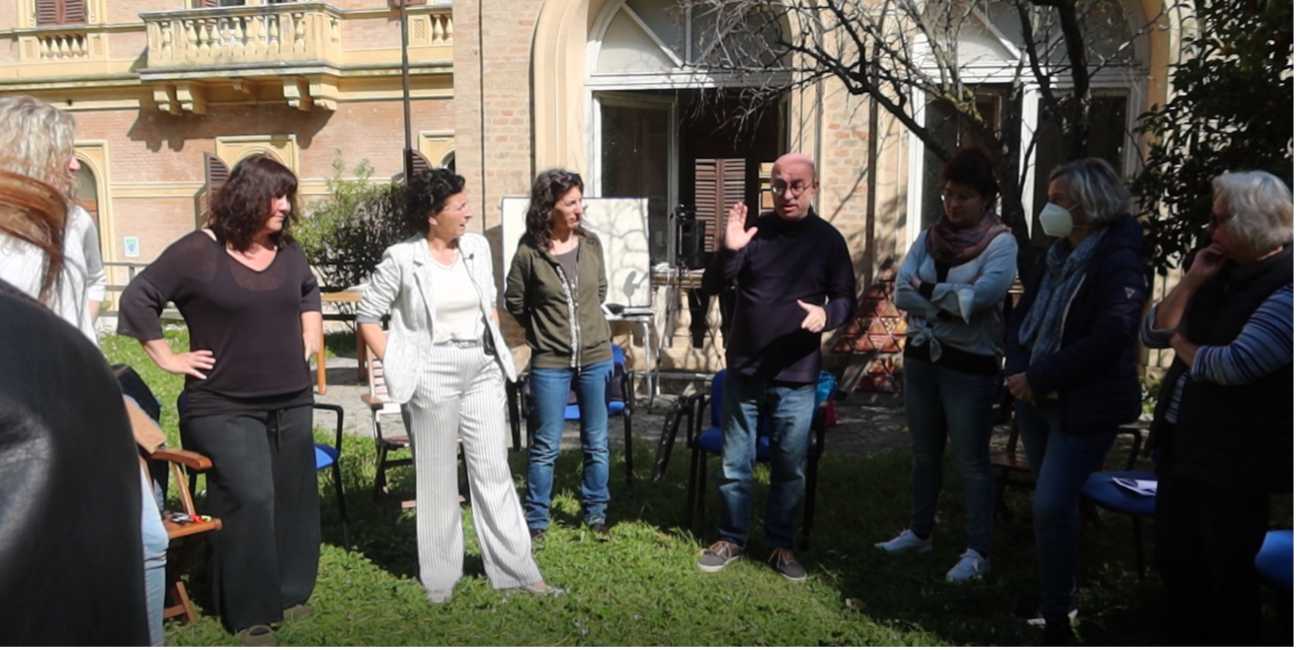SOUND is an Erasmus+ funded project which aims to develop a training curriculum of active and passive music-making activities targeted at social and healthcare professionals and informal carers involved in dementia care. The project also aims to produce an original music-based nonpharmacological intervention to improve the behaviour, mood and quality of life of older people with dementia and delay further cognitive decline for as long as possible .
The SOUND educational programme will seek to address different needs:
- Those of dementia care professionals, who look for more effective methods and techniques for dealing with dementia patients,
- Those of informal carers, who need to keep on training and acquiring new competences for better managing their loved ones in everyday life, and
Those of older people with dementia who must be listened and understood, should be able to communicate through a universal language, need to maintain their residual cognitive capabilities and seek to improve their quality of life.
| Joint interview of Sara Santini (INRCA) Giorgia Caldini, Claudia Bernardi and Albert Hera (ACMO), |
|
What are the objectives of SOUND?
SOUND aims at developing a training curriculum of activities inspired by Circleactivities to be used by care professionals working in the field of dementia and informal caregivers, and at testing an innovative therapeutic intervention to maintain cognitive function of older people with dementia and improve their behavior, mood, and quality of life. SOUND is also expected to positively affect the care staff’s cooperation and decrease the informal caregivers’ burden.
What is the innovation of SOUND?
The very innovative aspect of SOUND is to take the “beauty” into the care setting.
What kind of methodology will be applied?
The SOUND methodology is something new. It is inspired by the Circleactivities, a set of creative and music -oriented activities carried out in circle. This methodology has already provided some evidences of effectiveness on care professionals and older people during a previous experimentation held in Trento by Albert Hera, Giorgia Caldini and Claudia Bernardi.
SOUND adds to the previous experience:
- a rigorous monitoring of the outcomes
- an international dimension
- a personal interpretation of the activities based on the peculiarities of the organisations involved in the study such as for example the use of the piano, of the guitar and different instruments within the circle
- the inclusion of the informal caregivers
- the engagement of young people from an interegenerational perspective.
What are the potential benefits of using Circle Activities in the context of dementia?
The methodology of Circle Singing was first used by Albert Hera, a musician from Turin, in the educational sphere for music professionals. Its use has been extended to different and distant worlds, from the artistic-musical world, to application in team-building projects and in care environments. Underlying these forays outside the confines of the artistic world is the strong conviction that art can be a powerful medium in the service of wellbeing and thus of care and caring, whether in groups or organisations, or in people suffering from degenerative diseases such as dementia.
The first experiment of applying the Circle Activities technique with people suffering from dementia was made in 2018 involving users, their families and the operators of the team of the Alzheimer Day Centre of the APSP of Trento. The result was extraordinary: the people involved felt joy, laughed, were moved, and recognised themselves in a relationship of equality, outside the asymmetry implicit in the patient-caregiver relationship. The artistic approach opened up alternative communication and relationship channels to the usual ones. |
|
First project meeting
The first project meeting took place in Acona on April 26-27 2022. It was the opportunity to plan the next steps of the project but also to put its principles to the test. We look forward to dig deeper in the circle activities.


